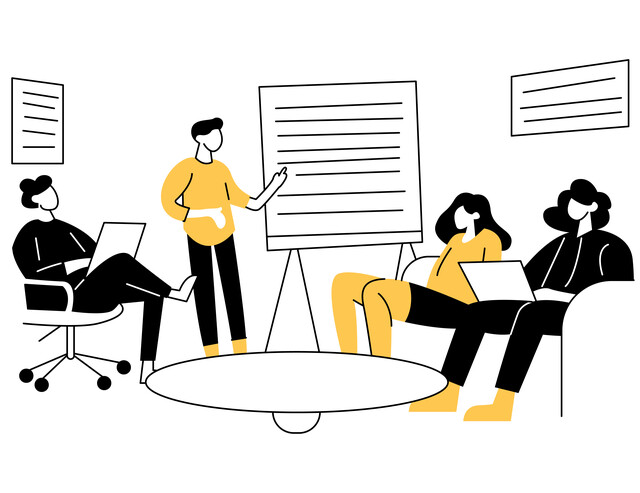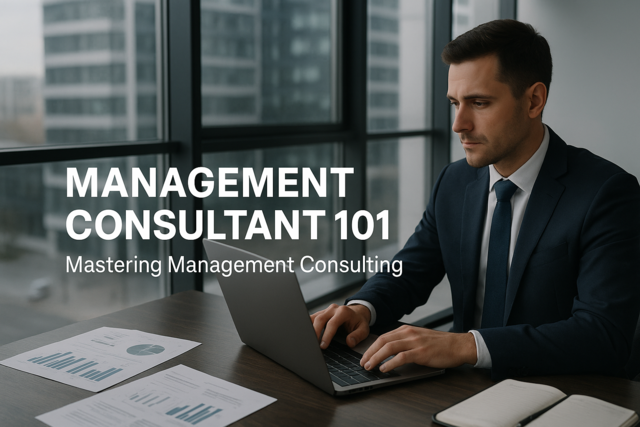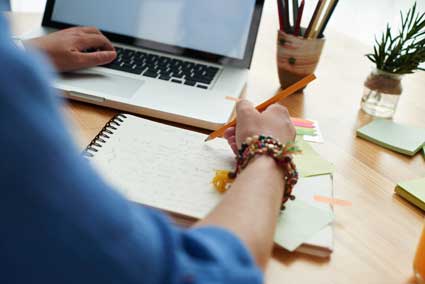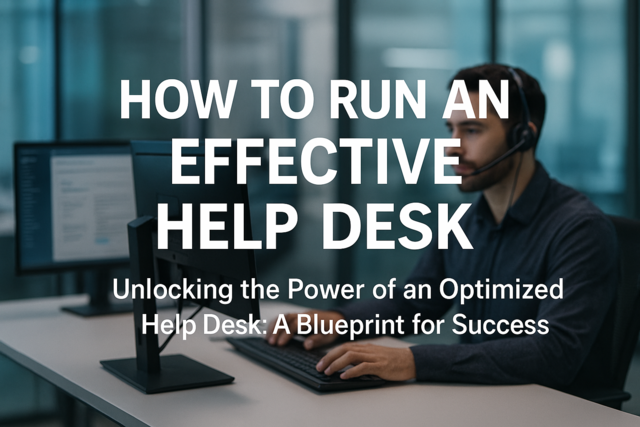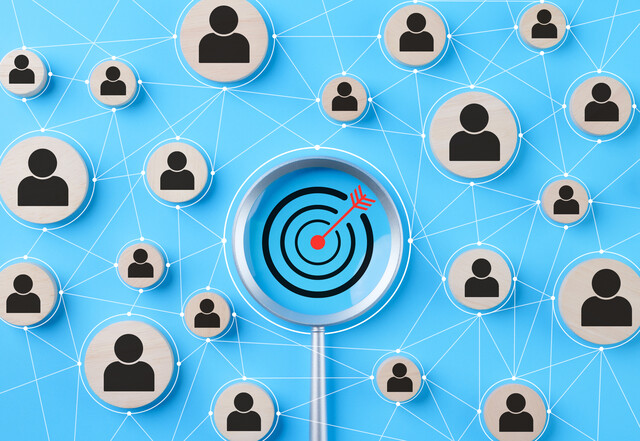Reading Body Language
There are many reasons why it is good to be able to read body language. It's one thing to hear what others are saying, but it's what they are not saying that is really important. Body language can help you determine if the other person's words are conveying his or her actual meaning. For example, in a job interview. you might think you are doing a great job and think the employer really likes you based on his words. But, when he doesn't call you back for a second interview, you will wonder what went wrong. If you had the skill to read the interviewer's body language, you would have known things weren't going well during the interview and could have attempted to turn the conversation in your favor.
Here are some examples of body language and the meaning behind the action.
- If someone is not making eye contact with you it's probably a sign of embarrassment, anxiety, or irritation.
- A clear sign of nervousness is when someone taps their foot on the floor, or taps their fingers on the table. This can also be a sign of boredom.
- You can tell if you are invading a person's space, if you find them backing away from you, or turning their head away from you. In some cultures, like China and Japan, this is acceptable behavior. In these countries, when people board a subway or bus they bump into each other. This is acceptable behavior and apologies are not necessary.
- If a person crosses their arms, it can mean a couple of different things. First, it's a defensive act, almost as if they are putting an invisible wall between themselves and others. This can also be mistaken for someone who is cold and they are simply crossing their arms for warmth. So, don't always jump to conclusions.
- When someone is sitting, sometimes you cannot see the legs, because they are under a table. If you can see the legs and they are open, or apart, it's a sign of relaxation and openness. If the legs are crossed it can mean the person is closed.
- Hands are another indicator of body language. If a person's hands are clasped together it can mean they are agitated or anxious, even angry. If their palms are open, facing up on the table while they are talking to you, it means they are confident in you and trusting. If they rub their hands while they are talking to you, it can be a form of anticipation; for example, they have an important meeting to go to after leaving you.
- If someone is touching their face by either rubbing their nose, chin, or eyes while talking to you, it can be an indication of deception. Look into their eyes and see if they make eye contact. If they tend to look down more than they look into your eyes, they are probably not being truthful. Again, they could have allergies, which would cause the rubbing of the nose and eyes, so be careful in your assumption.
- Biting the nails is a sign of insecurity. You can also look for signs of biting the lips and tugging at the ears, which are both signs of indecision and insecurity. They probably don't even know they are doing this, but your trained eye can spot this instantly.
- A confident person will most likely be sitting up straight, eyes forward, and feet firmly planted to the floor. Their shoulders will be straight, and they will have their full focus on the speaker. Sometimes you will notice them put the tips of the fingers of one hand against the tips of the other hand. This is a sign of a truly confident person. You may encounter this during an interview from the employer. This is a good sign, because you don't want to be working for someone who is not confident in themselves or their firm.
- Facial expressions are also easy to read. It is also easy for us to use facial body language involuntarily. We frown when we are not happy with something and smile when we are. Tight lips can mean that you are holding yourself back from saying something that might be offensive to another person.
- Shaking hands is very important in reading body language. People generally extend the hand they write with, but people in business understand that extending the right hand is almost always the case. You will find left-handed people have mastered the shaking of the right hand for this purpose. You should always offer your hand palm out vertically, not up or down. This creates the feeling of equality. Palm up would signify submission and palm down would signify domination. Squeeze the hand, but not hard, and make sure your elbow is locked in place. You don't want a flimsy loose handshake, as it is a sign of insecurity.
- Only a small percentage of the spoken word communicates what we are actually trying to say. The unspoken word makes up the rest.
Most people automatically look at body language as a means of reading others, but it is much more than that. In being aware of what signals you are sending out with your body, you can have an important advantage in many situations. The situations vary depending upon your lifestyle and daily routine. You may frequent the gym and have always said hello to a certain lady that you like. She never says hello back, but just waves an arm at you with a half smile. How do you walk into the gym? Do you have a nervous habit of biting your lips or rubbing your nose? This can come across to her as a sign of being untruthful. You are biting your lip because the winter has caused your lips to become chapped and peeled, and you are rubbing your nose because you have allergies. Unfortunately, the lady in the gym doesn't know this. It is for reasons such as these that you should, at all times, try to be self aware of what your body is saying.
If you are in a job interview situation, your goal is to get hired. That is the bottom line. You know the basics already. You wear your best suit, make sure your shoes are polished and not scuffed, your hair is tidy, and you are well groomed. The part you will need to be conscious of is what your body is saying. When you sit in the chair across from the employer make sure your feet are planted firmly on the ground. This helps with the position of your shoulders. If your legs are crossed at the ankle, your shoulders can tend to look slouchy. Don't fidget with your hands and don't tap your foot or shake your legs. B e sure to make direct eye contact. You can fold your hands in your lap, unless you are taking notes. If you are taking notes, don't tap your pen on the paper. Place the pen firmly in your hand when writing and place your palms down on the paper (with the pen still in your hand) during breaks from writing.
You want to avoid wearing jewelry that might be too gaudy or glittery. Jewelry that makes noise is also something you should leave at home. This can cause a distraction during the interview. Make sure you don't have tons of loose change in the bottom of your purse or in your pockets, as this can make a lot of noise, too. Aside from the noise, bulk can be a distraction, so if you have bulky items in your pocket, remove them prior to the interview. Leave them at home or in your car.
First impressions are pivotal. You are being sized up before you even open your mouth. It begins the moment you step into the lobby and encounter the receptionist or other employees passing through the lobby. In fact, it is not uncommon for hiring managers to ask the receptionist for their impression of you, even before the interview begins. Remember, a solidly run firm usually operates as a family unit. They become very close as they work together day in, and day out.
This, of course, doesn't include the handshake. That is mandatory. Try to extend your hand first to show excitement. Keep your arm straight out and your elbow locked. Grab the other hand firmly, but not too hard and shake in short, firm bursts. Look them directly in the eye as you are shaking their hand as a sign of respect and then have a seat. If you are not used to shaking hands, you need to practice. Don't wait until the day of the interview and go over it in your mind. You should probably get together with a friend or family member and practice shaking hands until you get it right. Unfortunately, there is no other way to practice, as you need a live person on the other end to tell you how you are doing.
It is no secret that the virtual office is growing at a very fast pace. People conduct their daily work activities from the comfort of their own homes. For most employers who hire the virtual professionals, occasional face-to-face meetings are required as well. This helps to discuss projects, keeps the relationship fresh, and provides for a more in-depth feel of the meeting (as opposed to meeting over the phone). You can use this to your advantage by suggesting a place in which to conduct the meeting. You can meet at a coffee shop, the library, or even the park. Try to pick a quiet place where you can both hear one another and can communicate effectively, without a lot of background noise or commotion.
Don't fidget, don't tap your fingers or feet, look him directly in the eye, and show him respect by nodding every once in a while to acknowledge your understanding.











